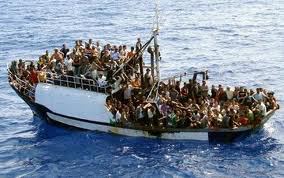
The note came out of the blue. After retiring from Centennial College where I taught journalism and broadcasting for 18 years, I’ve only periodically run into former students. They’re the ones busily working as newspaper or radio reporters, videographers, editors, etc. Most of the time, I hear from the successful ones. Not from those struggling. Then, I got a note from a young woman named Farheen.
“I have been looking for positions to help me build my portfolio,” she wrote in her email to me. “But due to my lack of experience, I always fall short.”
I remembered Farheen from a copy-editing course I taught. It was one of my favourite teaching moments of the week – giving young journalists fundamentals of the language that I’ve always loved, and that they definitely need. As I recall, while she spoke English well, her grasp of odd spellings, complicated English grammatical structure and punctuation was limited.
But, like so many students whose first language wasn’t necessarily English, there was a whole lot of drive there, even if the understanding was slow in coming. Anyway, she’d gone on placement, working as a copy-editor at a lifestyle magazine to get further training on-the-job, before seeking a full-time position.
“My (placement) editor submitted my evaluation,” she continued, “and said that my writing was disappointing … that they took a chance on bringing me in.”
I dropped everything I was doing to sit down and write an answer to my former student. First, I explained how great it was to hear from her. I applauded her initiative jumping right into the copy-editing placement and suggested that even for experienced journalists, correcting copy isn’t easy.
It occurs to me that Farheen’s predicament, struggling to make steady work and maybe a career is just more collateral damage inflicted by this COVID-19 pandemic. Offices have closed. Those who can, have brought their work home. Unemployment is way up, to about 13 per cent.
And only those who are established, experienced and, yes, those who are clearly not immigrants have survived better than new Canadians, landed immigrants, or in Farheen’s case, graduating students. But exacerbating the problem is the COVID-19 reality that immigration as a whole has slowed, even stopped. Borders have been closed, except for essential traffic.
Stats released this week by the Association of Canadian Studies say that residents admitted to Canada have dropped some 64 per cent – from 94,275 in spring 2019, to 34,260 through the spring of 2020. Migration is almost at a standstill.
I sense some Canadians, who don’t like immigrants or immigration, might cheer about such a statistic. I don’t. I happen to believe in the notion that we’re all immigrants, and that, as Peter C. Newman said, “we’re a nation of boat people.”
If you don’t happen to be old enough to remember the origin of the “boat people” phrase, it’s associated with the 1970s, when Canada opened its immigration doors wide to thousands of people from South-East Asia fleeing the after-effects of the Vietnam War. Literally boat loads of families crammed rickety ships and rafts – with little food and fresh water – to get to islands or shorelines where they might find sympathetic immigration services to accept them.
In the first year of their flight, Canada welcomed 5,600 Vietnamese immigrants; by 1985, 110,000 refugees had settled in Canada. I remember co-writing a CBC TV cross-Canada fundraiser for those immigrants; in one night we raised hundreds of thousands of dollars. By and large, however, they built their own lives here doing menial work (that the rest of us wouldn’t touch), scrimping to put their children through school, and giving this country the benefits of their culture, language, hard work and genuine joy at being Canadian citizens.
My parents weren’t boat people in the 1970s sense, but like those whom Canada encouraged to come from Europe after the Second World War, my folks came by way of the United States. The post-war immigrants – Italians, Greeks, Dutch, Germans and Britons – packed just as many boats (and trains) seeking new jobs, homes and lives here as those coming from South-East Asia.
And those immigrants of the 1950s built roads, suburbia, schools, small businesses and shops (many of which in Toronto have been gentrified into boutiques in Greektown, the Distillery District, Yorkville, the Beach, etc.) In more recent years, it’s the Syrians, Iranians and Lebanese who’ve flown from their birthplaces to give their children a better chance. Immigrants always worry about succeeding.
“When I got such a poor assessment, my self-esteem dropped to zero,” my former student Farheen said.
“Don’t worry,” I told her. “With your kind of initiative, something’s bound to crop up.” And I should have added, many Canadians I know, who’ve enjoyed the privilege of citizenship for a lifetime, could benefit from emulating her kind determination. There must always be a place for that in this country.